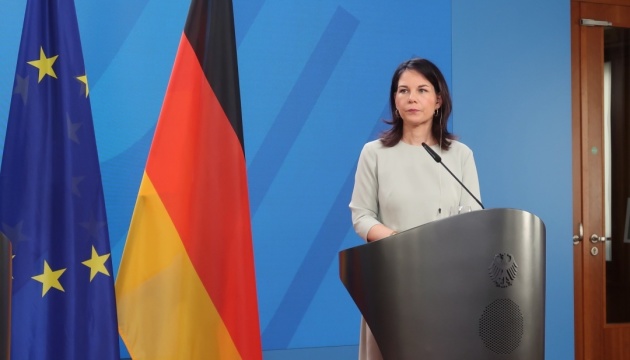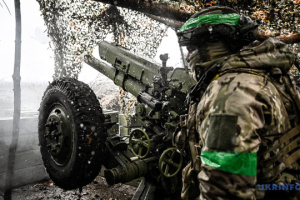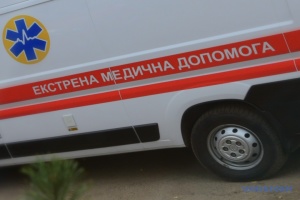
Air defense, drones, radars: Baerbock announces new arms supplies to Ukraine
Acting German Foreign Minister Annalena Baerbock said this at a joint press conference with Estonian Foreign Minister Margus Tsahkna in Berlin on Thursday, Ukrinform reports.
Baerbock announced that in the coming months, Germany would provide Ukraine with additional air defense systems, guided missiles, drones, and radars. She emphasized that real peace does not come through surrender, noting that those pressuring Ukraine to make concessions were not negotiating peace but paving the way for further escalation. A ceasefire on Putin's terms, she said, would not mark the end of the war but rather serve as a prelude to another offensive. She described Germany's response to Putin's war as "peace through strength" -- achieved through European unity and determination.
She also stressed that European sanctions would remain in place until a lasting peace was achieved.
Baerbock welcomed the European Commission's proposal for strengthening Europe's defense industry, calling it an important signal. She expressed confidence that establishing a European Defense Union was only a matter of time. According to her, this initiative is not just about better-coordinated and strengthened armaments but also about ensuring Europe's political ability to act.
She stressed that if individual EU members were blocking defense initiatives, delaying accession talks with Ukraine, or stalling sanction packages, this demonstrated the urgent need to reform the EU's decision-making process. She called for a shift toward qualified majority voting to enhance the EU's ability to act and strengthen collective security.
Tsahkna, in turn, said that Ukraine had done everything necessary and was fully committed to a ceasefire, provided that peace was fair, lasting, and sustainable. He noted that Kyiv, alongside the United States, had proposed a ceasefire two weeks earlier, but Putin and Russia -- being the only party capable of stopping the bloodshed -- had shown no willingness to engage.
Tsahkna emphasized the need to ensure that no negotiations take place about Ukraine without Ukraine or about European security without Europe.
He called for maintaining sanctions against Russia until the country fundamentally changed its behavior and ceased its aggressive policies. However, he warned that some European nations could obstruct sanctions, possibly as early as June this year.
He stressed the importance of preventing a scenario where a single EU member state could unilaterally lift sanctions. He also noted that the same country, which he chose not to name, was blocking discussions on frozen Russian assets.
Tsahkna noted that more than EUR 200 billion remained frozen but could not be released due to the obstruction of one EU member state. He urged joint efforts to prevent such a blockage.
He reaffirmed Estonia's commitment to defending NATO and Europe as part of the Alliance's eastern flank.
Last week, the Estonian government decided to increase defense spending from the current 3.7% of GDP to 5% next year, with the possibility of further increases in the future.
At the end of the press conference, Tsahkna presented Baerbock with Estonia's highest Foreign Ministry award -- the Order of Merit.
Baerbock will step down as foreign minister once a new German government is formed. She has been elected to the newly convened Bundestag. Additionally, Berlin has nominated her as a candidate for the presidency of the UN General Assembly on behalf of a group of European states. If elected this summer, she will assume the position in September for a one-year term.




